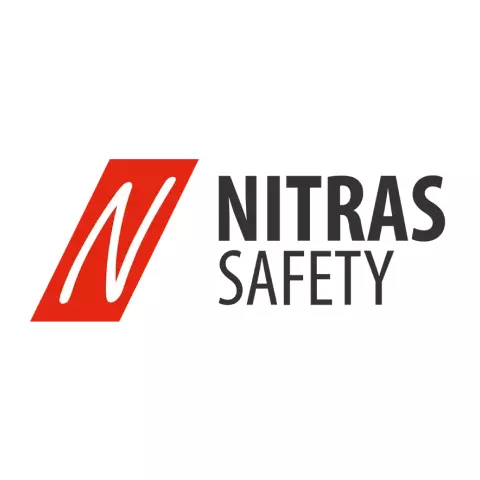Sopimusten hallinta optimoi yrityksen suorituskykyä ja vähentää riskejä luomalla, toteuttamalla ja arvioimalla sopimuksia.
Sopimusten hallinta on elintärkeää yrityksellesi. Oikeudellisesti sitovat sopimukset määrittävät yrityksen sidosryhmäsuhteet, hinnoittelumallit, tehtävien laajuuden, oikeudet ja velvollisuudet, projektiaikataulut, takuuehdot jne. Sopimukset ovat välttämättömiä, ja hyvä sopimusten hallinta voi lisätä organisaation menestystä. Vastaavasti jäsentymätön sopimusten hallinta voi altistaa yrityksesi operatiivisille ja taloudellisille riskeille.
Sopimusten hallinnan määritelmä
Sopimusten hallinta tarkoittaa oikeudellisesti sitovien sopimusten valvontaa alusta loppuun. Toiminnot voivat olla hallinnollisia tai strategisia riippuen siitä, kuka hallinnoi mitä vaihetta. Hyvin hoidettu sopimusten hallinta auttaa organisaatioita maksimoimaan sopimusten edut ja parantamaan suorituskykyä.
Sopimusten hallinnan rooli on muuttumassa. Datan analysointi on yhä tärkeämpi osa sopimusten hallintaa, ja nyt on tärkeää ymmärtää sopimuksen elinkaaren kaikki vaiheet. Pelkkä asiakirjojen toimittaminen ei enää riitä. Yritykset käyttävät sopimusten elinkaaren hallintaohjelmistoja (CLM) suorituskyvyn parantamiseen ja tavoitteiden saavuttamiseen. Gartnerin tutkimus osoittaa, että CLM kehittyy operatiivisesta kirjanpitojärjestelmästä yritystason ydinjärjestelmäksi, joka käsittelee liiketoiminnan riskejä, kuluja ja tuottojen maksimointia.
Tehokas sopimusten hallinta hankinnassa
Sopimusten hallinta on tärkeää, koska tapa, jolla hoidat sopimuksia alusta loppuun, vaikuttaa niiden lopputulokseen. CLM-menetelmä auttaa organisaatioita maksimoimaan sopimusten hyödyt samalla kun noudatetaan sääntöjä ja hallitaan kolmannen osapuolen suhteita.
Standardoitu ja yhteistyöhön perustuva sopimusten hallinta hankintaprosesseissa koko organisaatiossa on olennaista, koska se tuo sidosryhmät yhteen. Organisaatiosi voi odottaa saavuttavansa tavoitteensa ja vahvistavansa asemaansa.
Sopimusten hallintastrategia varmistaa, että hankintatavoitteet saavutetaan. Se voi huomioida useita tekijöitä, kuten:
- Arvonluonnin lisääminen
- Suorituskyvyn hallinta
- Riskien vähentäminen
- Roolien selkeys
- Toimittajasuhteiden parantaminen
- Laadunvarmistus
Hankintasopimusten hallinta varmistaa, että sopimus toteutetaan määritellyssä aikataulussa, suorituskyvyn standardien mukaisesti, ilman virheitä ja sovitulla hinnalla/kustannuksella.
Hankintasopimusten hallinnan edut
Sopimusten hallinta hankinnassa mahdollistaa sidosryhmille, kuten lakiosastoille ja säädösten noudattamisesta vastaaville osastoille, sopimusten hakemisen ja tarkistamisen ilman, että heidän tarvitsee manuaalisesti etsiä sopimuksia papereiden joukosta. Sopimusten hallinta rajoittaa sopimusten katseluoikeuden valtuutetuille henkilöille, mikä parantaa turvallisuutta.
Se myös muistuttaa avainhenkilöitä, kun sopimusten umpeutumispäivät lähestyvät, jolloin organisaatiot voivat neuvotella uudelleen tai irtisanoa sopimuksen ja välttää tilanteet, joissa sopimukset uusiutuvat automaattisesti huonommilla ehdoilla. Toimittajakulujen seuraaminen on helpompaa yhdistämällä sopimusten hallinta muihin talous- tai hankintatyökaluihin.
Hyödyttää liiketoimintaa
Tehokas sopimusten hallinta jäsentää yrityksen tavoitteet, prosessit ja päämäärät, mikä yksinkertaistaa toimintoja ja analysoi menestystä. Sopimusten hallinta voi myös paljastaa tapoja kasvattaa liikevaihtoa ja vähentää kuluja.
Parantaa toimintoja
Parhaat sopimusten hallintaratkaisut käyttävät työkaluja tai ohjelmistoja, jotka automatisoivat sopimusten hallintaa. Manuaalisten tehtävien poistaminen lisää yrityksen tuottavuutta ja vähentää virheitä. Henkilökunta voi keskittyä strategisiin sopimusten hallintatehtäviin, kuten suorituskyvyn arviointiin ja kehittämiseen.
Lisää kulutuksen läpinäkyvyyttä ja vähentää hallitsematonta kulutusta
Sopimusten hallinta jäsentää organisaation sidosryhmäsuhteet, erityisesti toimittajat, helpottaen transaktioiden ja suorituskyvyn seurantaa. Se lisää kulutuksen läpinäkyvyyttä ja rahankäytön selkeyttä. Kulutuksen näkyvyyden lisääminen voi rajoittaa hallitsematonta kulutusta, joka on suuri ongelma monille organisaatioille.


































